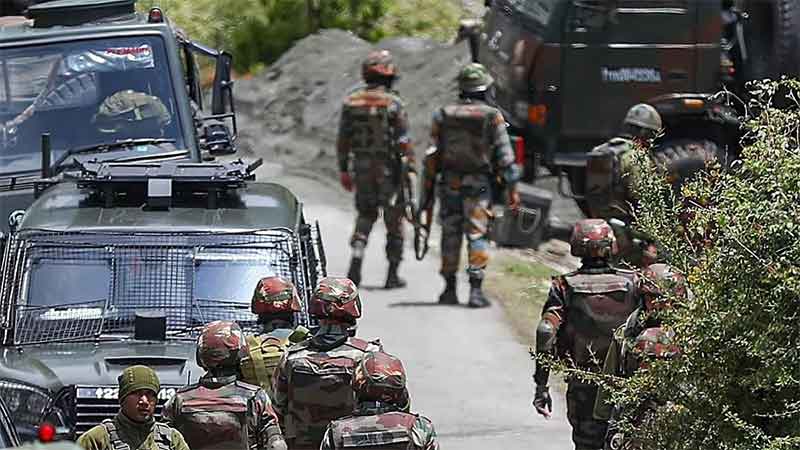
A disturbing wave of terror attacks has gripped Jammu and Kashmir, claiming at least 19 lives over the past two weeks and unsettling the peace in the Union Territory after the highly anticipated assembly election results. The recent escalation has seen a total of seven attacks, each sowing fear among locals and bringing into question the region’s fragile security.
On October 24, the scenic town of Gulmarg, known for its tourism appeal, turned into the site of a brutal assault when an army vehicle was ambushed near the Baramulla district, just a few kilometres from the famous resort town. In this attack, four people, including two Army officers and two civilian porters, were killed. Several others sustained injuries and were quickly transported to a nearby hospital. Security forces swiftly launched a large-scale search operation along the Line of Control (LoC), sealing off all travel routes to contain the perpetrators.
The attack came mere hours after terrorists shot a labourer from Uttar Pradesh in Pulwama district’s Tral area. The labourer sustained severe injuries, highlighting the growing vulnerability of non-local workers in the Valley.
The surge in violence began with an attack on October 20 in Kashmir’s Ganderbal district, where seven people, including six migrant labourers and a local doctor, were gunned down at a construction site near the Z-Morh tunnel. The site, a key infrastructure project aimed at boosting connectivity, was shattered by gunfire as terrorists opened fire on workers, leaving a trail of destruction and grief.
This series of incidents has raised concerns among the local population, many of whom fear that the escalating violence will harm both tourism and daily life. The army and paramilitary forces have increased vigilance, particularly in volatile areas like Baramulla, Pulwama, and Ganderbal. Authorities have also appealed to civilians to remain alert and report any suspicious activity, as intelligence inputs suggest more such attacks could be planned.
Government officials are currently coordinating efforts to maintain calm, but the tension in the valley is palpable. Following the assembly elections, which were meant to foster a fresh political start, this wave of terror attacks serves as a stark reminder of the complex challenges that continue to confront Jammu and Kashmir.
In response to the escalating violence, Jammu and Kashmir’s administration has requested increased security deployments and reinforced checkpoints along key routes. The Union Home Ministry has also dispatched a team to coordinate counter-terrorism operations with local authorities. Special advisories have been issued to tourists, urging caution and vigilance while travelling in sensitive areas.
The string of attacks has further complicated the lives of labourers from outside Jammu and Kashmir, who are vital to the region’s economy but have been among the primary targets. Fear is spreading among these migrant workers, and many are now seeking to leave the valley.
Despite these recent events, many are hopeful that with increased security measures and vigilance, peace can once again be restored in the valley. Local leaders are calling for unity and resilience, urging citizens not to succumb to fear.
Subscribe to Our Newsletter
Get the latest CounterCurrents updates delivered straight to your inbox.
The recent attacks serve as a grim reminder of the challenges that Jammu and Kashmir face even as it seeks stability and growth. While security forces are working around the clock, the tragic events of the past two weeks have left a lasting scar on the community, emphasizing the need for continued efforts to restore peace in the valley.
Limya Mahajan is a journalist.









































